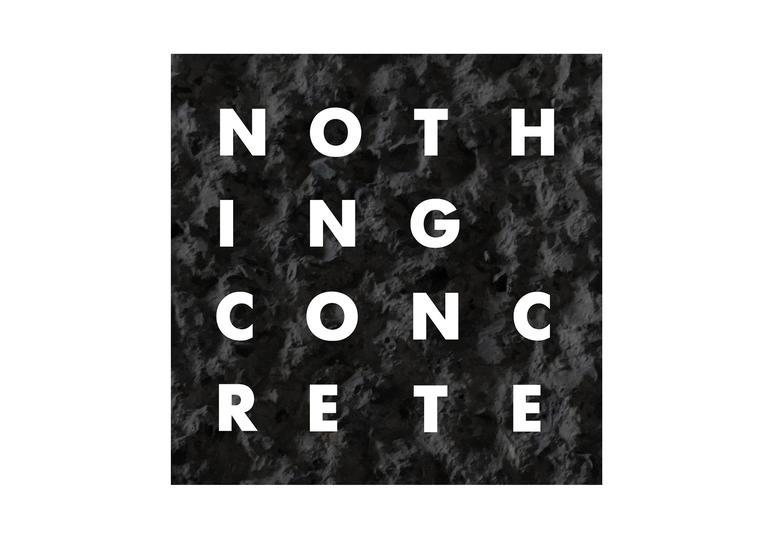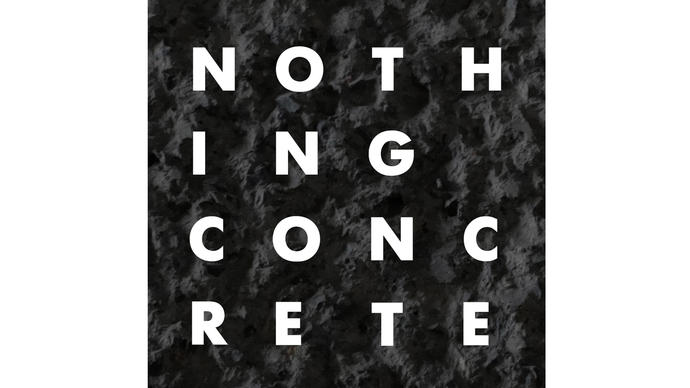JL: Hello, and welcome to Nothing Concrete, the Barbican podcast. I'm Josie Long, and this is Sound Unbound, where we explore the music that moves creative minds. Today we're joined by a director whose politics are at the heart of his work, with films like I Daniel Blake, The Wind That Shakes the Barley and Land and Freedom. So it's no surprise that he's chosen a piece of music with a strong political story.
KL: My name is Ken Loach and the music that I'd like to talk about is the Dvořák Cello Concerto, and I think we'll hear the last movement.
JL: We're going to hear about Czech music, but first we need to hear about Czech cinema.
KL: My memories of the Dvořák’s Cello Concerto go back to 1968. The biggest influence on me as a director and a great enjoyment of the people I knew in cinema in the 60s were the Czech films of the Czech New Wave, and we like them for their simplicity, their apparent simplicity, their humanity, their comedy, the warmth of the way they showed people. The very simple stories that in fact were very important stories. Things like Miloš Forman's 'A Blonde in Love', ‘Peter and Paula’ or Jiří Menzel’s ‘Closely Observed Trains’, and various other films at that time. The cameraman that I came to work with was Chris Menges, and he'd worked with a cameraman for Miroslav Ondricek as his assistant, and he and I talked about those films and the style of photography that they employed.
And it was to do with natural light, very sympathetic light. It has to do with an observed style of filmmaking where the camera sat back from the action. It didn't intervene between the people and the scene, it observed them, and again, in a sympathetic way, and the lens is corresponding to the human eye. And they were generally at eye level, so you felt you were present, you were a quiet, sympathetic observer to the scenes as they unfolded. So we liked all that. And that informed us in how we worked on a film called ‘Kes’, which we shot in 1968. Coincidentally, in August of ‘68, when we were filming, the Soviet tanks rolled into Prague, and that time in Czech history was destroyed. The filmmaking was destroyed, the Soviets took over, the Stalinists took over and wrecked that possibility of socialism of the human face, as it was called. So Chris, and I, and everybody concerned because we've been touched by their films were very, I think, felt as far as we could further the plight of the Czech people.
Then I heard the Cello Concerto. And it spoke of great affection by the composer, by Dvořák for his people. He knew there's a sense of warmth, humanity, all the things we saw in the cinema, or thought we saw.
A sense of longing for um, a peaceful, dignified, human way to live. It's very touching, and so the Cello Concerto stayed with me, obviously since, and I not only enjoy it as a wonderful piece of music, but also for the sadness of those times, but also for the generosity of spirit, the comedy, the warmth, the human warmth that I think Dvořák captures, and which I remember from those films.
JL: This is conductor Ben Gernon to tell us about Dvořák, a composer born in 1841, who became hugely successful within his life.
BG: One thing I find really fascinating about Dvořák is his human character. He was the eldest of fourteen children. He was surrounded by folk music in his childhood. He had nine children himself, six of which survived infancy, and he also suffered from agoraphobia.
His love life was a little bit strange to begin with. He fell in love with one of his students called Josephina, who was sixteen at the time, and she wanted to be an actress and he was teaching her piano. Unfortunately, she didn't fall in love with Dvořák. So he then thought, okay, I'll fall in love with her little sister instead. So he decided to marry Anna. And they moved to New York, in the early 1890s. He was offered half a million pounds in today's terms, to go and be the director of the New York Conservatory. And he was, at this time, very famous for having created a wonderfully strong Czech voice in his compositions, and he has created a national identity for classical music in Czechoslovakia. And so the people of America really wanted the same for them. So he was taken over to America and given this great task of creating a national identity for American classical music, and this for him was a really important moment in his career.
JL: Let's go back to 1968 and to Ken Loach's Czech connection
KL: I think the feelings are very fresh, I mean, I don't…you don't hear it every week. So, when I do hear it, it evokes that time, I can't help it evoking that time, and the enjoyment of the music is coloured by those memories. The music became very publicly associated with the Soviets and the Russian invasion, and that was by Rostropovich, and the performance is very eloquent, and I think was known to be. Rostropovich was known to be moved by the events that had happened, so that is the recording, you know, that everyone knows, and you can't fail to be moved by it.
BG: There was a very famous recording of the Dvořák Cello Concerto. It's from the BBC Proms on the 21st of August 1968, where Rostropovich, a Russian cellist was playing the Concerto with a Russian orchestra, the USSR state Symphony, with Svetlanov, also a Russian conductor. Now the important thing to note here is that this happened on the same day that Russia invaded Czechoslovakia to end the Prague Spring, and the performance began with heckling and protest. The audience was furious that Russia had invaded Czechoslovakia. People in the audience described seeing Rostropovich, having tears running down his eyes. It was very clear to everybody where his sympathies lay and at the end of the performance, he held up the score of the Cello Concerto as a gesture of solidarity for Dvořák's homeland, and the city of Prague, a city that Rostropovich absolutely adored.
KL: Well, I mean, they’re one of two themes that are very eloquent, I'm not switching to musicologist, God forbid, or say where they come, but I think the tunes within it are very well known and the cello sweeps through them and you can read them in a number of ways. You know, like greeting old friends I think someone said, or of grief at a personal moment.
JL: Ben's got the story of one of the most famous themes in the Cello Concerto
BG: Whilst the Dvořák family were in New York around 1895, Josephina, his sister in law, the lady who he was originally in love with, became very ill and news had just reached them. In response to hearing this news Dvořák feverously started writing the Cello Concerto and completed it within six weeks. Within the Concerto in the second movement, he included her favourite song that he had written, a song called Leave Me Alone.
And one can really sense that he's feeling extremely homesick for Josephina and the sadness that he felt. And this real sense of being extremely far away from maybe the woman that he loved, right from the very beginning. He returned home, and she died a month later and he revised the end of the piece to create this coda where there is a sense of dying away before the orchestra come up once more for a final hurrah. And for me what is really interesting here in this piece is Dvořák's human response to loss, human response to love and human response to being far away from those who love.
JL: The cello is so well suited to that plaintive longing sound. And Ken Loach just used that to great effect in his own creative partnership with the composer George Fenton.
KL: Working with George Fenton who's written the music for our films and for many years, and he used the cello to great effect, particularly in a film called ‘Land and Freedom’ about the Spanish Civil War. And the splits on the left between the side led by the social democrats and the Russian communists and those by the revolutionary left, um the revolutionary left lost mainly because of the hard line of the Russian Communist Party. But again, people are for fascism. Were some of them killed, disoriented, disorganised and lost, that great possibility of a social revolution as well as defeating fascism. And George has used a cello octet at it. It was a wonderful sound, I mean, absolutely beautiful sounds and again, captured hope and grief.
JL: Before we wrap this episode up, I'll leave you with Ben and Ken Loach with some final thoughts on Dvořák's Czech musical identity in spirit.
BG: Dvořák was a master at creating a national sound for Czechoslovakia. When you listen to his music, you can hear these melodies that spin, they go on forever and ever. And you get this really warm sense of sentimentality, in his string rising and wind figures that are fleeting and joyful, and almost like little peasant dances. And combining this all together, you get a composer who is extremely comfortable expressing his heart but it also expressing tension, dark sounds but also joyful and uplifting sounds too.
KL: It picture land here, I picture faces. There's times I've gone to Eastern Europe not only Czechoslovakia but particularly around during the time when the wall was across Europe, people's faces, particularly working class faces, friendship warms that kind of generosity of spirit. And the things I think Dvořák tried to evoke in his music.
JL: Thanks to Ken Loach, Ben Gernon and to you for listening to this episode of Sound Unbound with me Josie Long. In the next episode, we'll be talking to the comedian Jayde Adams about second chances, death and opera.
'We should be infiltrating children's minds with classical music and I, I am evidence of the effect that a music teacher that cared about me. I'm working class, my mum worked at Asda, my mum and dad have done everything they can to sort of put me in the right directions and they're great parents. But if it wasn't for that one teacher at my school taking it an interest in me, I don't know where I'd be.’
Thanks for listening to Sound Unbound, part of Nothing Concrete from the Barbican. To listen to the rest of the series, subscribe to Nothing concrete, on Acast, Spotify or wherever you find your podcast, and if you'd like to hear more of the music connected to this episode, listen and subscribe to the Barbican's Sound Unbound playlist on Spotify.
Sound Unbound is produced by Freya Hellier for Loftus Media. The assistant producer is Alex Quinn.


